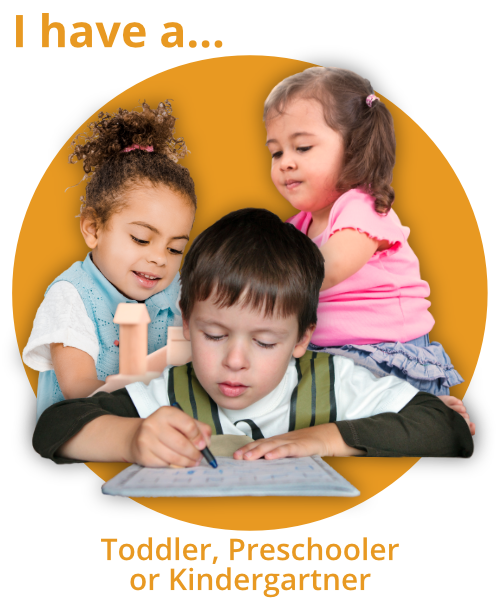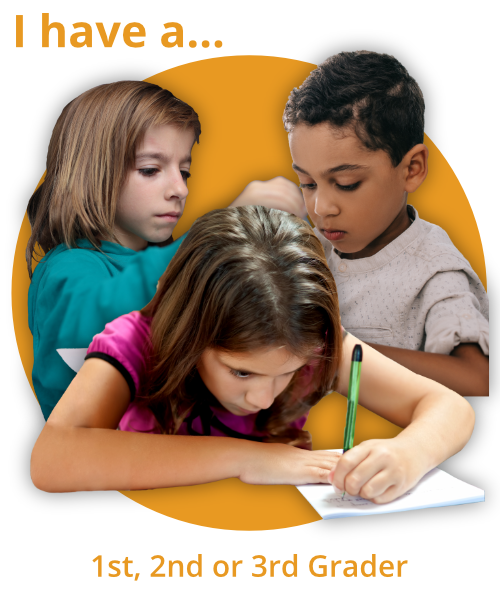It's Safe to Change Your Homeschool Routine
Are you still looking for that perfect Montessori homeschool routine? Me, too - and I've been doing this for 13 years! Good thing I don't believe in "perfect"....but I can tell you that changing up your routine now and then is good for you AND your children.
I'm Aubrey Hargis, Montessorian and mom of two. If education begins at birth, and I believe that it does, I have been a homeschooler for the past 13 years. That is a lot of time, and you think I'd have it all together by now: the perfect routine, the perfect curriculum, the perfect homeschool day...but I don't! Because my children and my family, including myself, are always changing. So, I keep on having to change and learn and grow...but that's okay. Because education is a journey we take with our children...and the opportunities for learning start over every day.
Hey, Sweet Friend (1:18)
Welcome back to the podcast, the 2021 version! Happy New Year to you. I hope that you are bringing in January with a whole lot of optimism and excitement. Last year was indescribable. I am bringing in a lot of faith and excitement and forward, thinking that this year is going to be something I'm going to want to remember and to talk about and reflect on peacefully by the time I get to December 2021. Our topic for today is homeschool routines and why changing them up can actually be good for you and your children. This is a great topic to discuss as we move into the new year...a great time to do some reflecting and to just dive into January, willing to experiment with your homeschool routine and kind of shift things. So that is what we're going to be talking about: some details about how to do that, and my own experiences with it.
Meet Becky (4:54)
Before we get started with today’s discussion, I want to introduce Becky--Montessori Mom and Homeschooler, and participant in my membership group, Constellation.
You can read more about Becky here!
Let’s dive deeper into routines…(13:32)
This topic is near and dear to my heart. I am a human with an ADHD diagnosis, and I have learned that my nature is toward chaos! I am constantly making messes, forgetting to put things away, and you guys do not want to come and see my piles of laundry or how I mismanaged my dishes. I talk about it on this podcast all the time, because it is a real issue for me. It's not just as easy as forming good habits and then being consistent with them...routine is something that I have struggled with my whole life. I am constantly being bombarded by distractions; but keeping myself centered and structured is something I *crave.* Because of this, I build as much structure into my days as possible.
Without routine, homeschooling just doesn't actually happen for me. If I don't write down what it is that we are going to focus on, or the flow of our day so I can actually make it happen, then I end up just waking up and fluttering around the house... and then the day has just disappeared. So routines are really, really important! They don't have to be time based. It can be loose: we're going to have a three hour work cycle in the morning, and then go outside around 2pm. Even a loose routine done consistently is a GREAT help to children who are learning the patterns and rhythms of their own days.
Before you dive into the curriculum, iron out your rhythms and routines (17:00)
This is one of the first things I tell participants in my Homeschool of the Redwoods Primary course. Rhythms are the natural, biological beats of your day….when you are hungry, when you are sleepy, when you are most productive or receptive. Routines are the things that happen in our day that give us structure: what we do when, what comes first and what comes after.
It’s critical that you analyze both of those things, your rhythm and your routines in your home and see if they are facilitating concentration, happiness and joy for your family, or if you need to be exploring, observing and implementing more of one or the other. If you've got a natural rhythm and a kind of a nice flow, but there's a lack of routine, you may want to tackle the scheduling that needs to be in place in order for you to actually get to the lessons that you're going to teach. There's a lot of value in spontaneity. I love it. But what I need is room for spontaneity and messes and following the child within the structure of our own daily routine and awareness of what *I* need to make happen.
The benefits of a homeschool routine (20:44)
-It reduces everyone’s stress levels
-It helps the homeschooling parent be more efficient / focused
-It gives you a sense of control over what is happening next
-It allows you to integrate healthy habits into your day more mindfully
-It helps children feel secure
-It allows you to teach without constantly wondering what's coming up next.
So, if routine is good, why change it? (23:04)
Sometimes, we just get too comfortable in our routines, and it becomes less stimulating. This can sometimes offer a state of flow…but sometimes that lack of stimulation drages everyone’s energy down. You may find you’re adhering to your routine so much that you're not really seeing your child and what little things need a little bit of tweaking. Getting stuck in a strict routine can also prevent you from following your child.
Yes, routines can be comforting. Sometimes, however, we do the same routine for so long we become ingrained in our habits, and we actually prioritize the habits and the routine more than we prioritize the needs of the child. There is great value in helping our children be adaptable: they are in this process of understanding their needs,and starting to understand how to deal with transitions and change. Changing a routine can actually prepare your children for embracing and understanding that there are multiple ways of learning and growing within any environment.
This can be as simple as shifting WHEN or WHERE you have a work cycle. Try afternoon instead of morning! Switch your workspace or take all the work outside! If you’ve been trying one thing and it’s not quite felt right...give it a try a different way!
A word of caution, though: you can change too much, too often (26:17)
If you are constantly rotating materials in and out of your shelves, or rearranging your spaces, your children will learn to just expect new excitement and spaces all the time....and it can actually prevent children from being normalized. There's a whole podcast episode on normalization, if you're interested in digging deeper into that. BUT: if you rotate or change just a little bit, here or there--you put a new thing on the shelf; you try working on rugs for a while instead of at tables--you can draw new interest without creating the constant expectation of things being brand new each day.
How and when to change up your routine (27:35)
- Your child seems to be consistently breaking the rules! There is no other apparent reason, but they are consistently doing the opposite thing that you have been asking them to do, and seem to have fallen out of habits and routines that were coming naturally to them. This can be a sign that they are ready to switch it up!
-A big holiday, celebration, or major event can be a natural time to change things. There’s an open opportunity window because things are already changing in preparation...so you might shift and change the environment a little bit, too. You can always go back after the celebration is over: sometimes that little different spike in routine can help to reset your child's need for stimulation, and get them back into a nice, more settled place.
It may even be that in these small changes you find new things that actually work better for your child!
-Be like my friend Bridget: when something’s not working, don’t be afraid to try something different. If you have not been a structured person, try a little structure. If you are an overly strict and structured person, then try something more relaxed! You never know what parts are going to resonate with your children and what things are just going to take off and become your favorite part of your homeschool day.
Remember: YOU are the guide. (31:56)
Don't be afraid. If somebody you know is saying “...but that's not a Montessori approach,” try to remember: Montessori is inherently flexible. We want children to learn how to adapt themselves and to be in a flexible environment. You’re going to avoid rewards and punishments, and overwhelming micromanagement. But you are also going to gauge when your child needs more direct instruction… or even a break from overt homeschooling. Step back. Watch. See what they are interested in. Assess what you need to make the work sustainable.
You get to make up your own rules and your own rhythm. So if something isn't working for you, that is “classically Montessori” let it go, and try something else and see what feels good.
Gratitude (34:21)
Today, I am grateful for all those routine changes that I made when I was homeschooling my littles, and even the routine changes that I'm making with my older children right now! I am grateful for inspiration from other homeschool mamas. I am grateful for all those spontaneous moments that allowed me to mull things over while my children just laughed and played and did their thing without feeling the pressure to get it exactly right.


